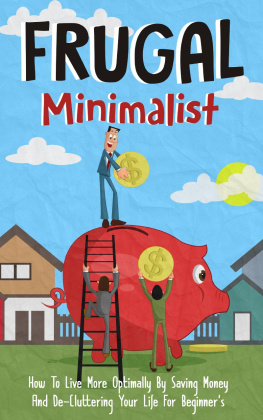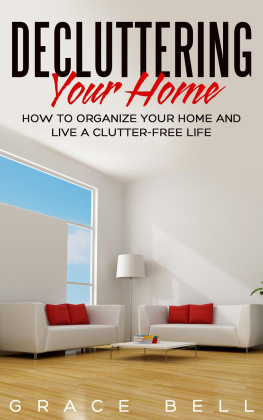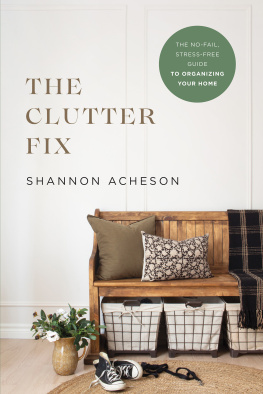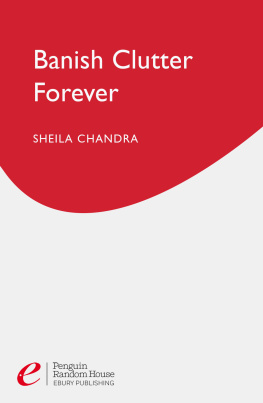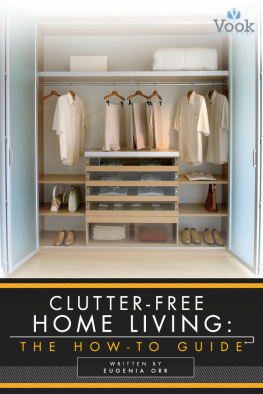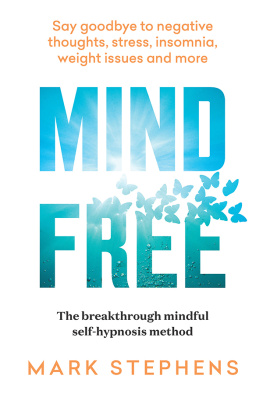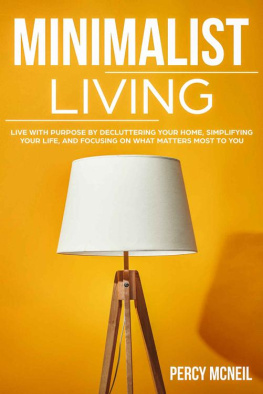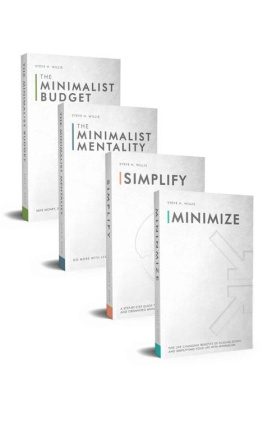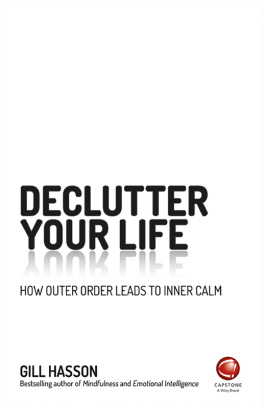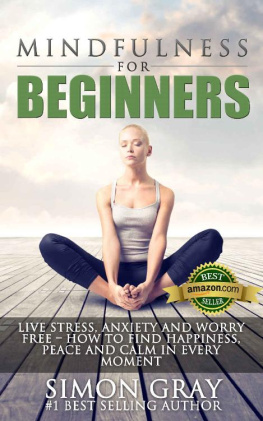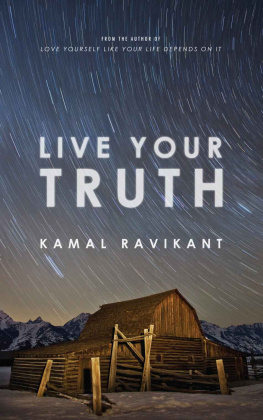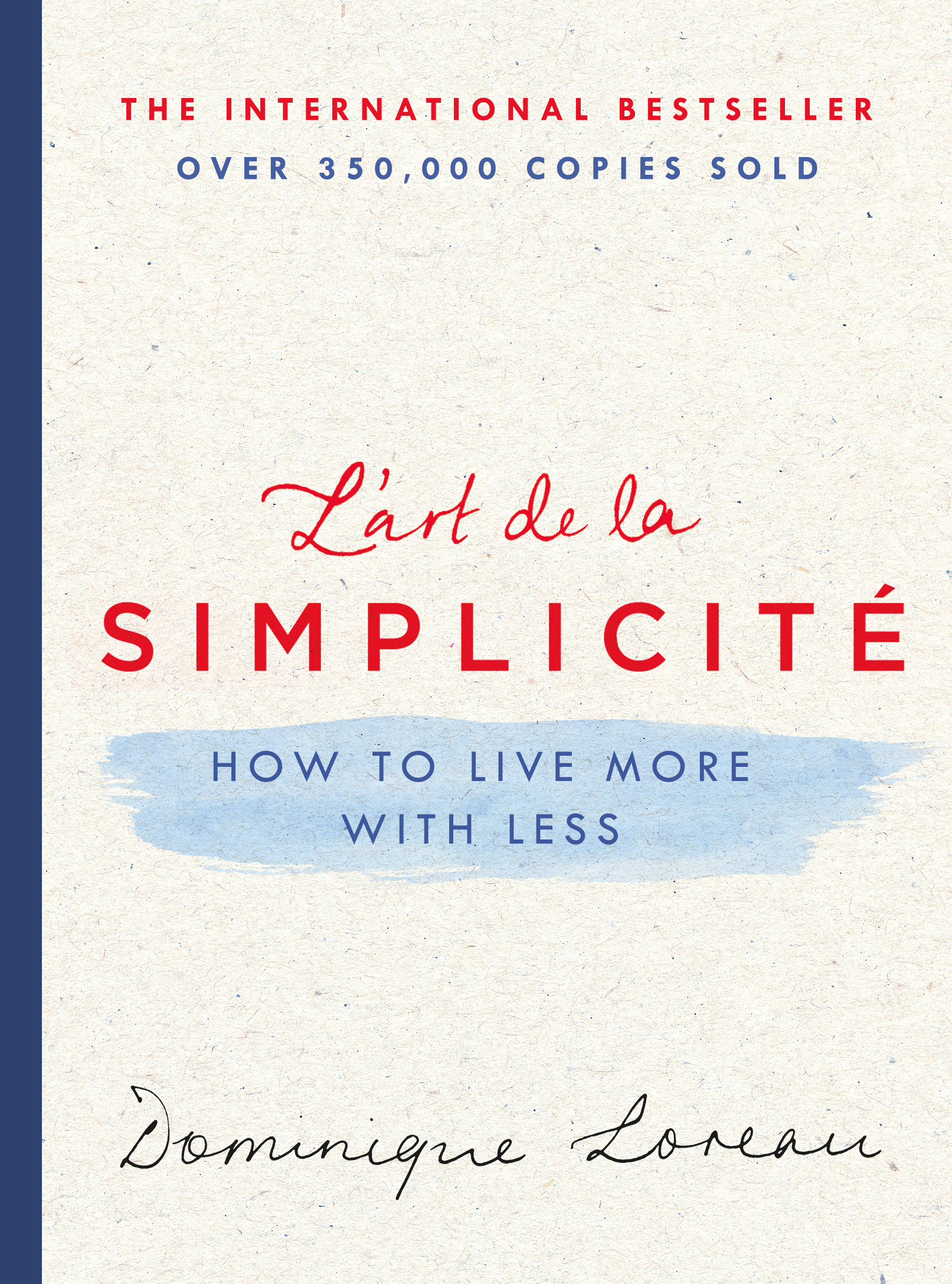Contents
Guide

The author and publisher have provided this e-book to you for your personal use only. You may not make this e-book publicly available in any way. Copyright infringement is against the law. If you believe the copy of this e-book you are reading infringes on the authors copyright, please notify the publisher at: us.macmillanusa.com/piracy.
For anyone in search of a simpler and better life, in mind, body or spirit, and at home: a helping hand to explore the vast potential that has been gifted to us all
Spring, in my cabin.
Utterly, wholly empty,
Utterly replete.
Haku by Matsuo Bash
Growing up in France, but endlessly curious about the rest of the world, I was determined to travel abroad in my student years. At nineteen, I worked as a classroom assistant in England, and at twenty-four I attended university in Missouri. I explored most of the other states of the Union, too, together with Canada, Mexico and Central America. But when I visited the Japanese Tea Garden in San Franciscos Golden Gate Park, I felt an overpowering need to discover the true source of so much beauty. I traveled to Japan, a country I realized I had been drawn to forever, though I had never been able to put my yearning into words. I went to Japan, and stayed.
The experience of two such different civilizations provoked endless self-examination. I began to search for the perfect way of life. And by a gradual process of elimination, I came to understand that the pursuit of simplicity was the right way for me to live both comfortably and at peace with my conscience.
Why Japan? Im often asked, when I tell people Ive been living here for over thirty years. And like everyone who has made Japan their adopted home, I answer: Japan is a passion, a deep-seated need. I feel at ease here, and spellbound, even now, by the prospect of exciting new discoveries, day after day.
For years, I have been fascinated by Japanese Zen and its many manifestations wash painting, temples, gardens, thermal springs, cooking, ikebana (flower arranging) and more.
I was fortunate, very early on, to meet a teacher of sumi-e (ink wash painting), and spent ten years learning not only the art itself, but also the very Japanese mind-set that comes with it: an acceptance of whatever life brings, without the constant need to dissect, analyze and explain. Put simply, sumi-e is an expression of the Zen way of life.
I taught French at a Buddhist university, and spent time training as a novice nun at Aichi Senmon Niso-do Zen temple, in Nagoya. When I left, I understood better than ever how, beneath the countrys modern, hi-tech veneer, this ancestral philosophy informs every aspect of Japanese life, down to the tiniest details. The better I came to know Japan, the more I understood the positive, enriching value of simplicity: a principle that classical philosophers, Christian mystics, Buddhists and Indian sages have strived to teach down the centuries, leaving us free to live unencumbered by prejudice, constraints and burdens that can disturb our focus and lead to stress. Simplicity offers the solution to so many problems.
Learning to live the simple life was no simple matter, however. I experienced a process of gradual metamorphosis, an increasingly urgent need to live with fewer things, but more lightness, freedom and fluidity; greater refinement, too. Little by little, I realized that, as I lightened my load, the things that were left seemed less and less vital. We actually need very little to live. And so I came to the unshakable, profound conviction that the less we have, the greater our sense of freedom, and the better we are able to thrive. I understood the need for caution, too: consumerism, inertia (both physical and mental) and negativity are waiting to ensnare us whenever our determination falters.
This book is the result of notes jotted throughout my years in Japan: it is the record and sum of my experiences and encounters, my reading and thinking, an expression of a personal ideal, a creed, a code of conduct, a way of life I aspire to continually, and work hard to implement. I keep all my notebooks, carrying them with me carefully wherever I go, as a kind of personal compass, reminding me of things I tend to forget, or fail to put into practice. They are a source of comfort, too, an affirmation of my most deeply held beliefs when, all around me, everything seems to be going awry. My notebooks are a precious storehouse of advice and exercises to dip into and practice as required, adaptable to new challenges, and to my changing needs, capabilities and circumstances.
We are only just beginning to realize the dangers of excess and opulence. More and more people are seeking the joys and benefits of a simpler, more natural existence, looking beyond the endless temptations of consumerism to devise new, meaningful, contemporary lifestyles.
This book is for all those people.
My hope is that it will help promote a proper understanding of the art of simplicity as a truly fulfilling way of life.
DOMINIQUE LOREAU is a French essayist who has lived in Japan since the 1970s. She is also the author of Lart de lEssentiel and Lart des Listes . You can sign up for email updates here.
Western society has lost the art of living simply. We have too many material possessions, too many temptations and desires, too much choice, too much to eat.
We waste and destroy so much. We use throwaway knives and forks, pens, lighters, cameras and to make them we pollute our water and air, the landscape and nature. Its up to us to tackle waste here and now, before we find ourselves forced to confront the issue tomorrow.
Only once we have eliminated waste can we catch a glimpse of new possibilities ahead; only then can our everyday, essential activities dressing, eating, sleeping take on new meaning, a different and deeper dimension. We do not seek perfection, but a life more richly lived. Opulent luxury brings neither grace nor elegance. It imprisons and destroys the soul, while simplicity offers the solution to so many problems.
An excess of possessions leaves us no time to devote to our bodies. But when we feel comfortable in our own skin, we are free to cultivate our mind and spirit, better able to attain a happier and more meaningful existence.
Simplicity means possessing little, clearing the way for the bare necessities, the quintessence of things.
Simplicity is beautiful because it brings hidden joys.
THE NEED TO HOARD
Most of us journey through life with a great deal often excessive amounts of baggage. We should pause for thought and ask ourselves, why we are so attached to things?
For many people, material wealth is an expression of selfhood, proof of their existence. Consciously or otherwise, they associate their identity and self-image with the things they possess. The more they have, the more secure, accomplished and fulfilled they feel. Everything becomes objectified and aspirational: material goods, bargains, works of art, acquaintances, ideas, friends, lovers, holidays, a god, even the ego. People consume, acquire, accumulate, collect. They have friends and contacts, hold diplomas, titles, awards. They stagger under the weight of their possessions and forget, or fail to realize, that their acquisitiveness saps their vital energies, making them listless, and subject to increasingly urgent needs and desires.
Many things are superfluous, but we only realize this when they are gone. We used them because they were there, not because they were essential. How often do we buy things simply because weve seen them in someone elses home?


